New York is home to the highest concentration of culinary schools in the world, and the state is home to some of the best culinary programs in the country.
Located in some of the most food-centric cities in the country – including New York City, San Francisco, and Boston – culinary schools in New York provide students with access to some of the world’s best restaurants and culinary experts.
With a variety of programs and options, culinary schools in New York offer students everything from associate’s degrees to four-year bachelor’s degrees to culinary internships.
Here are our picks for the best culinary schools in New York.
Monroe College - Bronx/New Rochelle
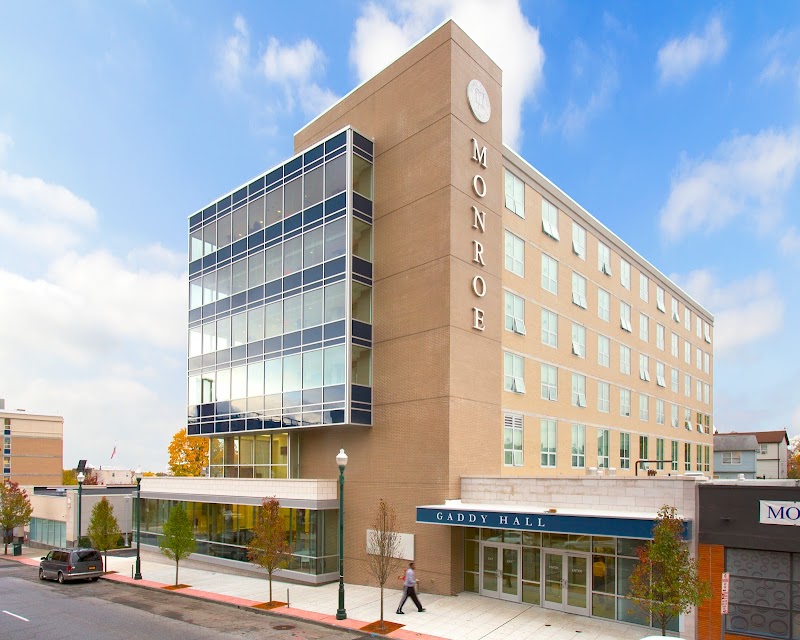
Monro College's International Chef Training Program is one of the best in the nation, providing students with hands-on experience in a professional kitchen and an overseas internship.
The program, which lasts for two years, takes students to two culinary capitals, Milan, Italy and Tokyo, Japan.
While in Milan, students gain experience at a local restaurant, where they work with professional chefs to sharpen their knife skills and cooking techniques. In Tokyo, students participate in an internship at the prestigious Tokyo International Hotel, where they learn the hospitality trade while serving high-profile guests.
Back in New York, students at Monro College's Culinary Arts and Restaurant Management School can gain hands-on experience at the school's state-of-the-art commercial restaurant, The Monroe.
The facility, which was recently renovated to include a teaching kitchen, a cafe, and a 100-seat restaurant, gives students the opportunity to work in a professional setting, serving high-profile guests and learning the trade from industry experts.
The Culinary Institute of America
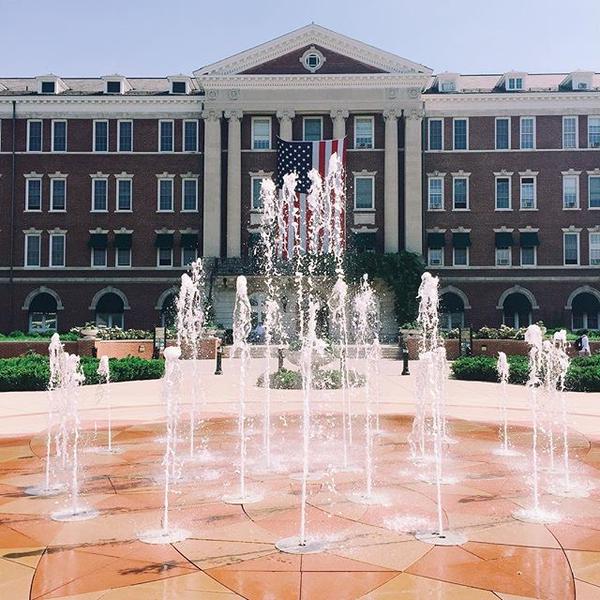
The CIA is the first American school to offer a four-year bachelor's degree in culinary arts, and the school's restaurant, Restaurant Associates, is the oldest professional cooking school in the country, having opened in 1963.
The school's network of professional kitchens and classrooms allow CIA students to gain real-world experience, working with some of the finest chefs in the industry.
With a student to faculty ratio of 3:1, CIA students benefit from small class sizes and individualized instruction, allowing instructors to get to know each student's talents and strengths.
Each of CIA's three campuses – the main school in Hyde Park, New York, and the professional training centers in California and Texas – have their own kitchens, teaching facilities, and gardens, ensuring that students have plenty of space and equipment for practicing their craft.
Each year, the CIA hosts the Golden Fork Awards, honoring the best chefs and restaurants in the industry. The annual event draws hundreds of entries from across the country, all judged by a panel of CIA-trained experts.
Paul Smith's College

What better place to start a list of New York culinary schools than with the school that gave the world the “Iron Chef,” J-Wok, and so many other famous chefs?
A branch of the statewide State University of New York system, Paul Smith's College has been training the next generation of food professionals since 1867.
As the second-oldest college in the state, after only Brooklyn College, Paul Smith's knows a thing or two about food.
And although it is a small school, with a student body of just over 1,000, it has an impressive 85:1 student to faculty ratio. That means that every student has ample opportunity to work one-on-one with some of the best culinary instructors in the world.
In addition to its impressive staff, Paul Smith's also boasts one of the best kitchens in the world, filled with the latest professional-grade equipment.
The kitchen is not only the setting for the school's 40+ culinary and hospitality courses, but also a working exhibit for the school's collection of professional-grade equipment.
SUNY Niagara County Community College
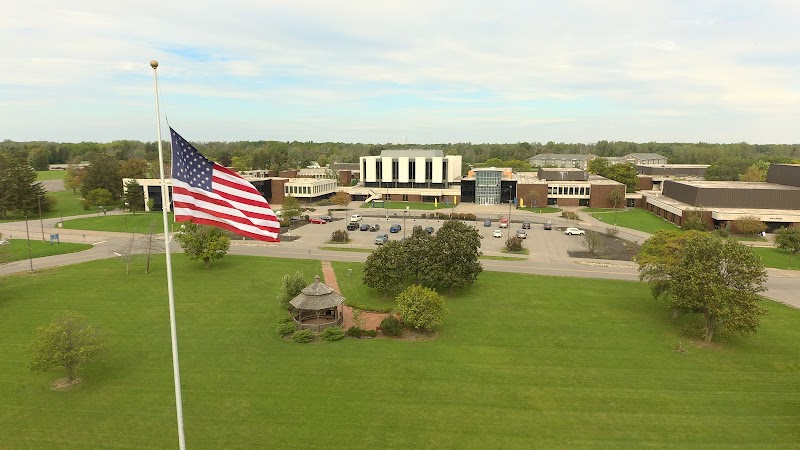
What do you get when you mix a nationally recognized culinary arts program with a top-quality, low-cost tuition? You get SUNY Niagara County Community College.
Located in an excellent location in Fallsburg, New York, a mere 30 minutes from the heart of New York City, SUNY Niagara offers one of the best learning experiences in the country.
With a student to faculty ratio of 13:1, culinary students at SUNY Niagara have plenty of one-on-one time with their instructors.
The school also offers unique opportunities, such as the ability to host pop-up restaurants and catered events for local companies after completing their training.
And, of course, SUNY Niagara students get the chance to bake and cook in the school's world-famous cake and pastry arts program.
What makes SUNY Niagara even more impressive is its affordability. SUNY Niagara is the most affordable school on this list, with in-state tuition costs of $6,000.
SUNY College of Agriculture & Technology at Cobleskill

The SUNY Cobleskill College of Agriculture & Technology at Cobleskill is a branch of the SUNY Cobleskill campus, which itself is part of the State University of New York system.
SUNY Cobleskill ranks #1 in the list of Best Public Colleges in New York for its excellent job placement rates and low average student debt.
The College of Agriculture & Technology at Cobleskill has a lot to be proud of: not only does it train some of the best food production and processing technicians in the country, but it also offers some of the country's top culinary and hospitality programs.
The college's culinary arts bachelor's degree requires students to complete 240 hours in the kitchen, including 50 hours of independent study and 20 hours of clinical experience in a restaurant or food service operation.
Students also gain experience working with professional-level equipment and facilities, including a fully-equipped commercial kitchen and bakery, a restaurant, and a demonstration and farm stands.
SUNY Cobleskill is home to the first U.S. Department of Agriculture-approved Plant Health Professional program in the country. The program trains students in the science and business of horticulture, with a heavy emphasis on hands-on experience and the use of professional-level equipment and facilities.
CUNY Kingsborough Community College
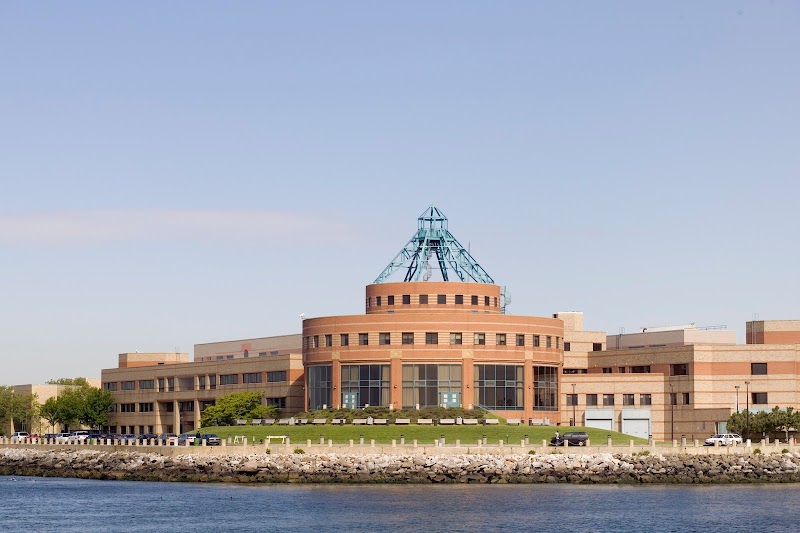
What does it take to become a great chef? Passion, creativity, and technical know-how are a must. But a good chef also needs a solid education in the basics of food and cooking.
That's why CUNY Kingsborough Community College is a great choice for anyone looking to study the culinary arts.
The college's associate degree in culinary arts is a full two-year program, packed with courses in the basics of food preparation and presentation.
Students learn about everything from knife skills and food safety to the science of food and the psychology of eating.
They also put their knowledge into practice in the school's on-campus commercial kitchen, where they can sharpen their skills by preparing a range of dishes for various audiences.
Those looking for a more brief introduction to the culinary world will appreciate CUNY Kingsborough's culinary demonstration and presentation program.
Through this certificate program, students learn the basics of food preparation, along with the skills needed to present their dishes to an audience.
They also get to put their knowledge into practice by putting on actual culinary demonstrations for audiences of all kinds.
SUNY Finger Lakes Community College
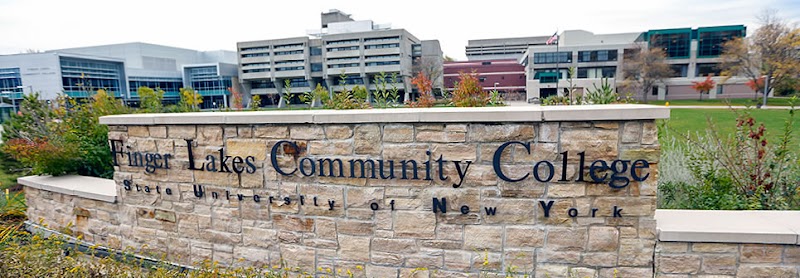
What better place to study culinary arts than at a Community College? This choice allows students to experience the full range of higher education while remaining close to home.
At SUNY Finger Lakes Community College, students can earn an associate degree in culinary arts with a concentration in baking and another in restaurant management.
Over the course of two years, students learn fundamental skills in the kitchen and in the office, including business management, food sanitation, and customer service. Classes culminate in a professional internship, giving students the chance to put their knowledge to work in a real-world setting.
A second option is the associate degree in applied science in culinary arts, which can be completed in just one year. This option provides a more technical approach to the subject, covering subjects such as food chemistry, food production, and food safety.
Cornell University
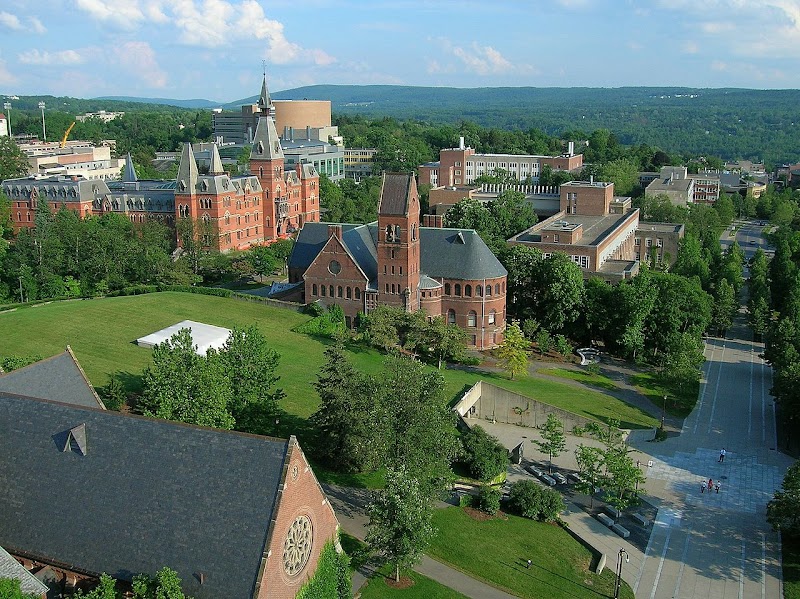
Cornell University is home to the nation's first university-based hospitality management program. The school's School of Hotel Administration was founded in 1946 with the intention of advancing research and knowledge in the field. Today, that research and knowledge has grown, with the school hosting forums and conferences that bring together thought leaders in the industry.
The School of Hotel Administration offers three different bachelor's degree programs in the culinary arts, including a bachelor of science in hospitality and management and bachelor of arts degrees in culinary arts and food, wine, and hospitality management.
Through the culinary arts degree, students learn the fundamentals of food, including how it's grown, harvested, processed, and prepared. Students in the program take classes in food preparation, nutrition, and the business of food. Additionally, students have the opportunity to put their skills to use by working with the school's student-run restaurant, The Inn at Cornell.
Students in the school's Food, Arts, and Culture program get the chance to learn about food production from the ground up, from farming to distribution. In addition, students also study how food intersects with other disciplines, including history, law, and policy.
SUNY Suffolk County Community College

SUNY Suffolk County Community College is the only college on this list that is part of the State University of New York system. But don't let that fool you — this school is a wonderful choice for anyone interested in pursuing a career in the culinary arts.
SUNY Suffolk offers several options for students interested in studying culinary arts, including a two-year associate's degree in culinary arts or a one-year certificate in commercial cooking.
In the associate's degree program, students learn the fundamentals of cooking, as well as fundamentals of food preparation and commercial baking. Students gain hands-on experience in the kitchen, learning how to prepare a wide array of dishes in a professional setting.
Those in the certificate program focus on commercial cooking, providing businesses with the staff they need to run their operations efficiently. Courses in the program focus on the basics of cooking, as well as foodservice production and safety.
No matter which program students choose, they'll learn from instructors who are experts in the culinary world. Faculty members have worked in a variety of settings, giving them first-hand experience working with a wide range of equipment and tools.
CUNY LaGuardia Community College
What do The French Laundry, the James Beard Foundation, and CUNY LaGuardia Community College have in common? Plenty.
For one, they each have pastry chef Jessica class of 2020 alum, Jessica Bowen, as a graduate. Jessica Bowen, who graduated from CUNY LaGuardia with an associate degree in culinary arts, went on to work at some of the most prestigious kitchens in the world, including Noma, Danji, and The Dutch.
She has been nominated for a James Beard Award for Rising Star Chef and was recently named to Food and Wine's Best New Chef 2019 list.
Another commonality? All three organizations are members of the Associates of the International Culinary Center (AICC), an organization that brings together the world's most distinguished culinary schools.
As an AICC member, CUNY LaGuardia offers the Associate in Applied Science degree in culinary arts. The program combines classroom instruction with hands-on experience, giving students the skills they need to enter the workforce as chefs, cooks, or food entrepreneurs.
Students spend 500 hours in the school's commercial kitchen, learning basic culinary techniques, as well as advanced skills, such as food styling, food photography, and food styling for advertising.
With this kind of training, it's no surprise that CUNY LaGuardia has sent numerous students on to some of the most prestigious culinary schools in the world, including The Culinary Institute of America, the International Culinary Center, and the French Culinary Institute.


